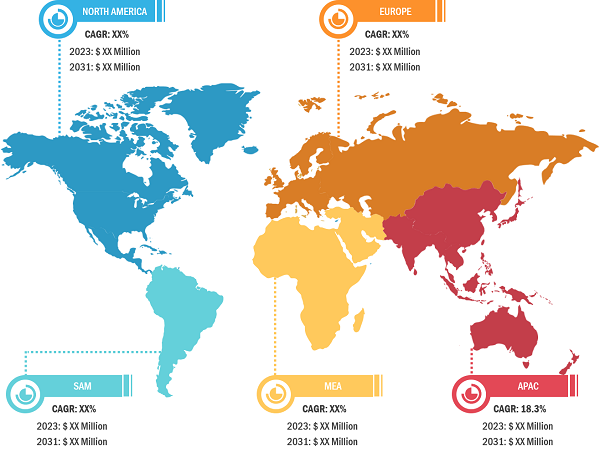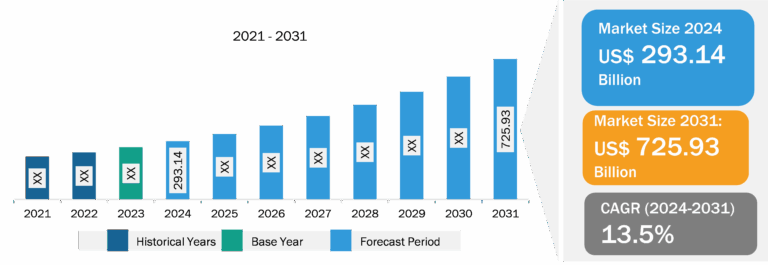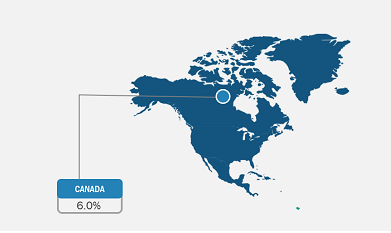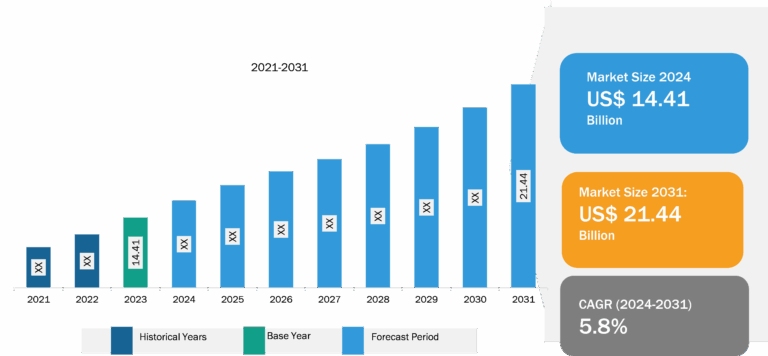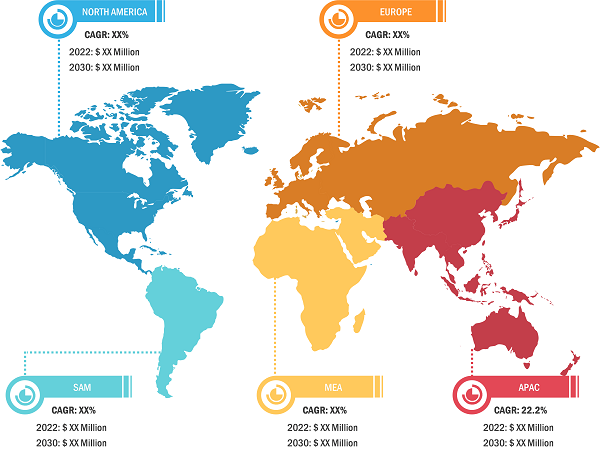
Visualization & 3D Rendering Software Market
With the rise in digitalization, increased accessibility, and user-friendliness of newer gaming technologies have driven the gaming industry, 3D modeling has revolutionized it. According to the European Gaming and Betting Association (EGBA) data, e-sports gaming revenues in Europe reached US$ 0.1 billion in 2021. In November 2022, the German Games Industry Association invested US$ 20.0 million in the development of the German gaming sector. Almost every high-end game deploys 3D or uses 3D assets. Games have become more realistic and enticing through 3D rendering technology.
In order to indulge a gamer entirely in the virtual world, the scenes, props, and people should seem realistic. 3D rendering software helps in improving graphics. Initially, 3D rendering tools were widely used by game developers to develop PC and console games. However, due to the incremental advancement in processing capacities of mobile microprocessors, developers are using 3D designing tools in the mobile gaming industry. Moreover, increasing affordability of smartphones and growing penetration of internet services worldwide have subsequently flourished the mobile gaming industry. Further, the COVID-19 pandemic propelled the gaming industry substantially as gaming giants, such as Electronic Arts and Activision Blizzard, announced higher year-on-year revenues and greater market penetration than ever before.

Film and gaming industries have become dependent on computer-generated images for a realistic experience. Animation and movies are one of the significant applications of 3D designing tools. For long, 3D designing tools have been widely used in animation and movies. However, the growing trend of the sci-fi genre worldwide has resulted in the rising adoption of 3D designing tools. The content creation industry, small production houses, and individual professionals utilize 3D designing tools at a broader level. Meanwhile, the growing deployment of animated advertisement content by small and medium businesses worldwide is also propelling the visualization & 3D rendering software market growth.
Germany Dominates Visualization & 3D Rendering Software Market in Europe
Manufacturing is one of the prominent sectors aiding the country’s economy, as 18 out of 33 globally operating machinery and equipment sectors comprise leading German manufacturing plants and machinery. The nation is highly industrialized, and the economically leading industries include chemical, automotive, and electronics. Also, Germany has the continent’s largest building stock and the continent’s leading construction market. A number of factors have contributed to a surge in German building investment, which is projected to continue in the near future. The construction industry’s extensive usage of 3D visualization software is fueling market expansion. Meanwhile, robust healthcare and public infrastructure is also one of the factors driving the visualization & 3D rendering software market growth in the region.
The firms in Germany majorly focus on product development strategies, along with inorganic growth tactics, to strengthen their market position. In August 2022, Chaos Software, an image rendering services company, launched V-Ray 6 for Maya, a new version with procedural clouds, enmesh for repeating geometry, and next-generation render analytics features. Such innovations are intended to aid the company in improving its business reach and staying ahead in the competitive landscape.
Visualization & 3D Rendering Software Market: Segmental Overview
Based on application, the visualization & 3D rendering software market is segmented into:
- Training Simulation
- Marketing and Advertisement
- Video Games
- Product Visualization
- Architectural Visualization
The marketing and advertisement segment held the largest share of the visualization & 3D rendering software market in 2022 and is anticipated to register the highest CAGR in the market during 2022–2030.
Based on deployment, the visualization & 3D rendering software market is segmented into:
- On-Premise
- Cloud
The on-premise control system segment held a larger share of the visualization & 3D rendering software market in 2022. The cloud segment is anticipated to register a higher CAGR in the market during 2022–2030.
Based on end user, the visualization & 3D rendering software market is segmented into:
- Media and Entertainment
- Architecture and Construction
- Design and Engineering,
- Healthcare
- Others
The architecture and construction segment held the largest share of the visualization & 3D rendering software market in 2022. The healthcare segment anticipated to register the highest CAGR in the market during 2022–2030.
Visualization & 3D Rendering Software Market Analysis: Competitive Landscape and Key Developments
Autodesk Inc, Christie Digital Systems Inc, Dassault Systemes SE, NVIDIA Corp, Chaos Group, Luxion Inc, OTOY Inc, Next Limit, Act-3D, and Thea Render by Altair are among the key visualization & 3D rendering software market players that are profiled in the report, which help in global traffic management. Several other essential visualization & 3D rendering software market players were analyzed for a holistic view of the market and its ecosystem. The visualization & 3D rendering software market report provides detailed market insights, which can help major players strategize their growth.
- In 2023, Luxion, developer of advanced 3D rendering and lighting technology, launched KeyShot 2023.2. It brings workflow improvements and feature updates. It can be interactive with 360-degree images from KeyShotXR and share them in Web Viewer.
- In 2023, Chaos released V-Ray 6 for Houdini, update 1 to surpass artistic limitations and bring your ideas to life. The latest update can transfer USD data between applications without manual conversions and enjoy accelerated rendering.


